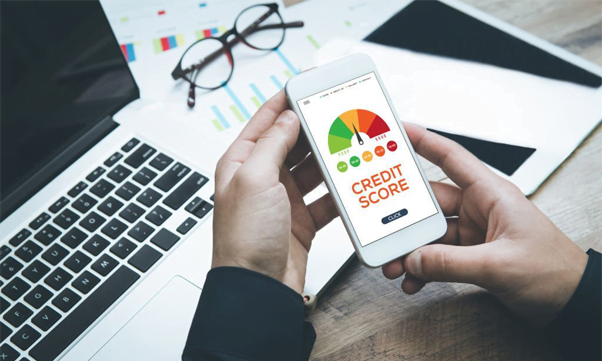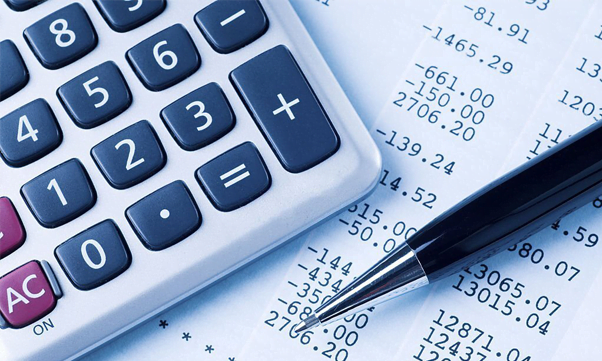How to get a bank account with bad credit?
Having a poor credit score can lead to so many problems when it comes to your finances, including getting approved for a bank account.
Banks use credit scores as one factor to determine whether or not to approve an application for a new checking or savings account.
You can do a few things to improve your probability of being approved for a bank account, even with bad credit.
Your banking history and current income will also influence the approval process.
Let’s find out more about how to get approved for a bank account with bad credit.
We’ll share everything you need to know about opening a bank account with bad credit.
So if you have bad credit and are looking for ways to get a bank account, this article is for you.

What is a credit score?
Your credit score is the three-digit number that lenders use to help determine your creditworthiness.
It’s based on information from your credit report and is calculated using a formula developed by the Fair Isaac Corporation, also known as FICO.
Your credit score can range from 300 (the lowest possible) to 850 (the highest possible).
From credit unions to banks and even prepaid debit card providers, many financial institutions use your credit score to determine whether or not to approve your application for a new account.
In addition to that, your credit score will also determine the type of account you can open, as well as the fees and interest rates you’ll be required to pay.
If you are planning for a loan or mortgage, your credit score will also play an important role in the approval process.
In simple words, your credit score shows how good you are when it comes to managing your finances.
The higher your credit score is, the more likely you are to get endorsed for a bank account or loan.
On the other hand, if you have bad credit, getting approved can be an uphill task.
There are mainly 5 types of credit score:
1. Excellent: 800 and above
2. Very Good: 740-799
3. Good: 670-739
4. Fair: 580-669
5. Poor: 300 – 579
As a consumer, your goal is to maintain a credit score of at least 670.
Anything lower than 670 will be considered bad credit and might throw your application for a bank account off the grid.
What is a bad credit score?

A bad credit score usually means you have a history of not paying your bills or loans on time.
It can also indicate that you’ve gone through bankruptcy, foreclosure, or some other financial hardship in the recent past.
Most lenders consider anything lower than 670 to be a bad credit score.
If your score is below this threshold, it will be more difficult for you to get approved for a loan or bank account.
Banks will likely impose additional fees for customers with bad credit, from overdraft fees to minimum balance fees.
Additionally, the interest rates on your account might be higher than what you would get with a good credit score.
So, it’s better to try and improve your credit score before applying for a bank account.
However, if that’s not possible, there are still ways to get a bank account, even with bad credit.
Can you open bank accounts with bad credit?
Yes, you can make a bank account with bad credit.
Banks allow customers to open regular checking or savings accounts, regardless of their credit.
However, you may face higher fees and more restrictions on your account if you have bad credit.
Some banks might even request additional information before you approve the application.
You have to pay the minimum opening deposit and agree to the terms and conditions of the account.
In addition to that, some banks may require you to show satisfactory proof of income and/or employment as well.
They might also ask you for references from other financial institutions before they can open an account for you.

It’s also important to note that getting approved for other types of accounts, such as a loan or a credit card, can be more difficult with bad credit.
A credit union or a community bank may be more willing to look past your credit score and consider other factors before they approve your application.
But still, it’s always better to try and enhance your credit score before applying for a bank account.
Can you open a checking account with bad credit?
Yes, it’s possible to open checking accounts with bad credit.
Most banks and financial institutions don’t use your credit score as the only factor when deciding whether to approve an account application or not.
In addition to that, most banks allow customers to open a basic checking account regardless of their credit history.
However, it’s important to note that you may still be subjected to additional fees and restrictions if you have bad credit.
For example, a credit union or bank might require a higher direct deposit before opening an account for you.
Furthermore, the bank may impose additional charges such as overdraft fees and monthly maintenance fees.

A credit check is the most common way to determine whether you can open a checking account with bad credit or not.
But banks also look at several other factors, such as your income, employment status, and references from other financial institutions.
Therefore, getting approved for a checking account is still possible, even with bad credit.
You just have to show that you can manage your account responsibly.
In simple words, it’s always better to try and improve your credit score before applying for a bank account, but it is still possible to get approved even with bad credit.
All you need to do is provide the necessary information and show you can manage your finances responsibly.
Can you open a business bank account with bad credit?

Before banks open an account for you, they need to understand how well you manage your finances.
This involves looking at your credit card and loan payment history, as any delinquencies or missed payments will negatively impact your chances of acquiring a business bank account.
It doesn’t matter if you don’t require borrowing money from the bank – their assessment is still based on potential risk.
To open a business account with bad credit, you must provide extra documentation proving your financial responsibility.
For instance, you should be able to demonstrate the stability of your business and its income.
You might also be required to present a detailed business plan in order to prove that your company is sustainable.
In addition, some banks may require the opinion of an accountant or a financial advisor.
This is to ensure that you have a good understanding of the business and its finances.
It’s important to note that even if you manage to open a business bank account with bad credit, certain restrictions are still in place.
The limitation may include higher fees, lower transaction limits, and reduced business loan access.
How to get a business bank account with bad credit?
It is possible to get a business bank account with bad credit.
However, it will take some extra effort on your part – here is what you can do to improve your chances of getting approved.
1. Build a Good Relationship with the Bank
If you manage to build a good relationship with the bank, it can help your chances of getting approved.
It would be best if you started by visiting the branch in person and talking to the staff about your business needs.
Talk to them about any challenges you face or any questions you have – this will help them understand your situation better.
2. Demonstrate Financial Responsibility
Most banks will assess your financial responsibility before approving an account.
This means that you need to prove that you have a good understanding of the business and its finances.
Provide detailed information about the business’s income, assets, liabilities, cash flow, etc.
Take some time to assess your current financial situation and present a balanced picture to the bank.
3. Provide Extra Documentation

Most banks require additional documentation, such as business plans and tax returns, when opening a business account with bad credit.
This is to ensure that you are capable of managing your finances responsibly and that the business is sustainable in the long run.
Make sure to only add relevant documents and provide accurate information.
4. Review Your Credit Report
Before applying for a business bank account, it is essential to review your credit report – make sure that all the information on the report is accurate and up-to-date.
Dispute any errors or inaccuracies before submitting the application to avoid delays in processing.
Take time to understand the factors that are used to determine your credit score and work on improving it.
5. Look for Alternative Lenders
If you are unable to get approval from traditional banks, you can look for alternative lenders, such as online banks or non-traditional institutions.
These financial institutions might be more willing to take a chance on businesses with bad credit, as they are more flexible and less strict with their requirements.
How to improve your credit score?

The best way to increase your chances of getting approved for a business bank account is to improve your credit score – here are some tips that can help you do just that:
1. Pay Bills on Time
Late payments have a negative impact on your credit score, so it’s essential to make sure that all of your bills and loan repayments are made on time.
Set up automatic payments if you need to in order to avoid missing deadlines.
You can also set reminders or use a budgeting app to help you stay on top of expenses.
2. Keep Credit Utilization Low

Your credit utilization rate is crucial in determining your credit score – the lower it is, the better.
Try to keep your credit card balance as low as possible and only use what you need – if you can, pay off the entire balance each month.
Your goal should be to keep the credit utilization rate below 30%.
So, for example, if your credit limit is $5,000, try to keep the balance below $1,500.
3. Check Your Credit Report Regularly
Monitoring your credit report can help you identify any errors or inaccuracies that might be affecting your score.
It also helps to keep an eye out for any suspicious activity, such as identity theft.
Make sure to review it at least once a year and dispute any errors you find.
Visit the credit bureau’s website to get a free copy of your credit report.
4. Don’t Open Too Many Accounts
Opening too many credit cards or loan accounts can hurt your credit score, so try to limit the number of applications you make.
Before applying for a new account, carefully research the terms and conditions.
It shows banks and lenders that you need credit to cover essential expenses and can responsibly manage it.
5. Seek Professional Advice

If you’re having trouble understanding your credit score or need help managing debt, it’s best to seek professional advice.
A financial advisor can provide valuable guidance and help you create a plan to improve your credit score in the long run.
They can also help you with budgeting and debt repayment strategies.
Final Thoughts
So, there you have it!
As you can see, having bad credit will not completely disqualify you from getting a business bank account.
With some careful planning, you can still get approved and start growing your business with the right financial partner.
Take time to research and compare different banks and lenders before making a decision so that you can find one that best fits your needs.
Good luck!
#Bank #Account #Bad #Credit










